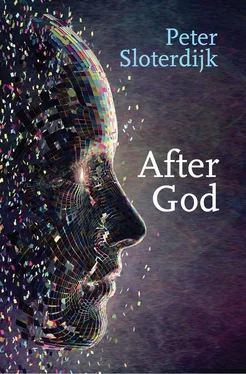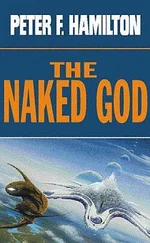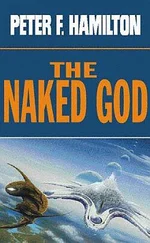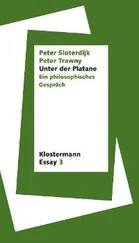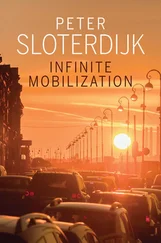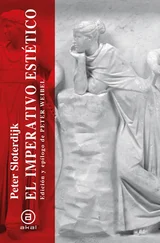From a philosophical perspective, what mythological discourse called the “twilight of the gods” amounts to nothing but the symbolic condensation of the consequences that result from the thesis that there is thinking. Precise thinking establishes a new reality. Descartes’s fallacy consisted in reclaiming thinking for his ego. Yet the ego is nothing but the place in which we first take note of the discovery that there is thinking. The fact that an ego ascribes its thinking and what is thought to itself is secondary. Descartes’ primary thought that, when I think, I thereby certainly am, turns out to be sterile from the beginning. The cogito builds an unshakable foundation without any structure on top of it. Every substantially fruitful thought belongs to the sphere of the “there is thinking” – or in any case to the sphere of the “there is thinking in me.” (Parenthetically: Fichte’s greatness comes from the fact that in his late work he emphasized the “there is” in the ego. If we are to think, we do need an ego first, but behind the ego that I immediately know – because I am the one who posited it – there is another ego rearing up; I do not know this latter ego, which uses me as its eye, as it were. This unknown ego that looks through me is called God. God is the will to substance, the will to non-sterility, the will to non-exhaustion in empty self-relation, in short, the will to world.)
Mythological aids are not sufficient for grasping the phenomenon of the “twilight of the gods.” Yet the word “twilight” does correctly indicate that God and gods don’t die, but instead fade away. This happens whether a brighter light consumes their own light or whether obfuscation makes them invisible. Lessing’s parable of the ring in Nathan the Wise (1779) – which he borrowed from Boccaccio’s Decameron (1356) – marks one stage in the process of their fading away. After it an aura of amiable undecidability surrounds the god of the once sharply contoured monotheisms.
Fading away as such need not be fatal. 16As the present shows, a god can recover from pallor when the times are favorable, even if the color he or she regains is for the most part questionable. Fading away is essentially irreversible because modern civilization has produced so much artificial light with its art, its science, its technology, and its medicine that God’s light seems faint in comparison. One can only let it shine on Sundays and holidays by turning off the machines of artificial light.
This last point can best be explained by turning back to the thanatology of classical metaphysics. According to old Europe’s authoritative story of creation, it was divine breath that lent human beings their feeling and reflecting soul. As long as the soul preserves its community with the body, the human being is still alive – or, as the German language puts it so profoundly, the human being is still am Leben . In the universe of Genesis, the pinnacle of reflection is located in divine intelligence, which can do what it wills and wills what it knows. (This is the case in most creation myths that are acquainted with a demiurge, a maker, 17a first author.) Individual human intelligences are loans that have been portioned out from the stock of the total intelligence. These gifts are repaid to the creator upon the death of the creature. The myth of the Last Judgment suggests the logic of a loan agreement: when the soul that has been borrowed is taken back, there is an examination of whether the refund is whole and sound. If it is not, the lender enacts his revenge on the dead ones who bring their souls back damaged, defaced, and darkened.
It is obvious that the classical model of transactions between God, the soul, and the world does not allow any other intelligent being to enter the world. Nor does this seem necessary to allow it, since God has drawn from his unsurpassable abundance and given to creation or nature as much order as they need for their existence. Not even the intelligently animated human being can arrange the world any more cleverly than it is as he finds it to be according to its primordial arrangement. For this reason, it is not uncommon for him to feel that the world is an “external world.” He is its guest, not one who should change it. Within this metaphysical model, the reflexive communication plays out only between God and the human being. The one who bestows intelligence brings souls into being and grants them enough revelation to lead them to believe in him; for the rest, human beings live “in their time,” after which they give back their animated intelligence, at death’s door. Once again we recall the subtle turn of phrase in French: rendre l’âme . The Protestant hymn knows this too, in its own way: the world is not my “proper home.” 18
The suggestiveness of these ideas may remain unaffected. Yet one cannot fail to recognize that they, too, breathe the spirit of a sublime sterility. This spirit gives the events of the world and creation the form of a zero-sum game. In this respect God gains nothing in the end. Human beings, by contrast, risk damnation if they have lived in a problematic fashion. An influx of intelligence into the world is unthinkable on the classical model of communication between God and souls. Under these circumstances, Post-Babylonian humanity, which has been dispersed into different cultures, can do no more than produce sufficiently similar offspring.
At this point modernity raises its objection to classical metaphysics. Owing to the matter under discussion, this objection must take the form of an alternative interpretation of death. One cannot rule out the possibility that the human being “gives the soul back” upon death. Yet it no longer corresponds to the experience of symbolically and technologically active human beings in higher civilizations to assume that the world remains unaffected by the departure of an intelligent soul from it.
Indeed, wherever one looks, one sees that human beings have been active as god-making animals. Yet as soon as they invested in their god creations, their god-making frenzy revealed them to be the sort of animal that raises monuments. In high cultures, they act as producers who fill the “hall of memory” with material. They operate as collectors of sacred and profane memorabilia. They function as administrators of “cultural heritage” and as wardens of patrimonies. These observations can in no way be aligned with the basic idea of classical thanatology, namely that in death human beings give their soul back to God without any deductions. Rather it seems that, to the extent that they have become “creative,” humans have gained the ability to leave behind, in the world, something of their intelligent soul. They do, admittedly, give “themselves” back in death. Yet they also frequently create a “work” that is preserved in the world and can become the point of departure for further creations and for renewable legacies.
*
The phenomenon of the “twilight of the gods” thus has practically nothing to do with transcendent fatalities at the divine level. Rather it concerns only the relation between creative intelligences and the world. If we want to keep making use of the concept of fate, we could say that this concept pertains to the fact that higher cultures become beholden to the backlash of their creativity. The more they advance in accumulating artificial effects – and the more these effects succumb to the law of self-intensification (or, in cybernetic terminology, to positive feedback) – the more intensely can we notice culture’s overshadowing of nature, and the more relentlessly does the fading away of the divine side take place.
It is no accident that the pious have always suspected that large cities were hotbeds of atheism. And they were right to do so, for city dwellers have always been surrounded by proofs of the mind and of the power of purely human environment formations. Since the days of the Tanakh (in Christian language, the Old Testament) the name “Babylon” has stood for the funfair of artificialities. This inevitably turns people’s attention away from the one thing that is necessary. The artificial environment of the city directs its inhabitants more toward themselves and toward the architectonic ambitions of their predecessors than toward the work of the gods or of God. The fact that metropolises such as Jerusalem, Rome, and Benares survived as holy cities proves only that certain priestly elites were able to mystify their cities as theaters of constructed proofs of God. In Chicago, Singapore, and Berlin, as well as in other urban agglomerations around the earth, such a maneuver would have failed beforehand.
Читать дальше
